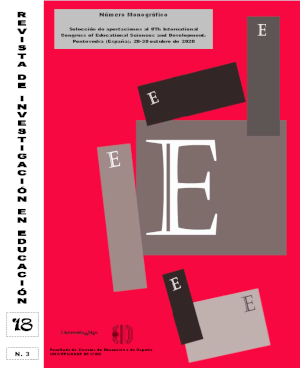Does dispositional mindfulness mediate the relationship between anxiety and exam performance?
DOI:
https://doi.org/10.35869/reined.v18i3.3271Keywords:
Dispositional Mindfulness, Exam Marking, Anxiety, Mediation AnalysisAbstract
Anxiety affects students’ performance in exams. Dispositional mindfulness (DM), the ability to be aware of one’s own feelings and thoughts while not react to them, is associated with better cognitive performance under anxiety conditions. However, none study has addressed if DM mediates between anxiety and students’ performance in test taking. The aim was to study DM as a mediator of the effect of anxiety over exam performance in a college sample.
240 students driven from the same course and subject participated. Data was gathered before exam started. Measures entailed a sociodemographic questionnaire; the State-Trait Anxiety Inventory (STAI); the Five-Facets Mindfulness Questionnaire (FFMQ); and final marks from the exam. Mediational analyses were performed for each STAI dimension, setting each FFMQ factor as mediator, and marks from the final exam as outcome.
Twenty-nine participants were excluded due to prior experience in meditation. Direct effect model showed that final exam score was significantly predicted by STAI-State (R2=,145, p<,001, b=-,536, 95% CI [-,719, -353]). A significant indirect effect was detected (t=-3,937, p<,001) for STAI-State through FFMQ-Non-Reactivity (b=-,06, 95% CI [-,095, -,032]).
Data suggest that anxiety negatively affects performance in final exams, but this effect is ameliorated by DM.
Downloads
Downloads
Published
Issue
Section
License
The acceptance of the papers for publication, means that the printing and reproduction rights are owned by the journal. The conditions of use and reuse of content are those established in the Creative Commons CC BY-NC-ND 4.0 license.



